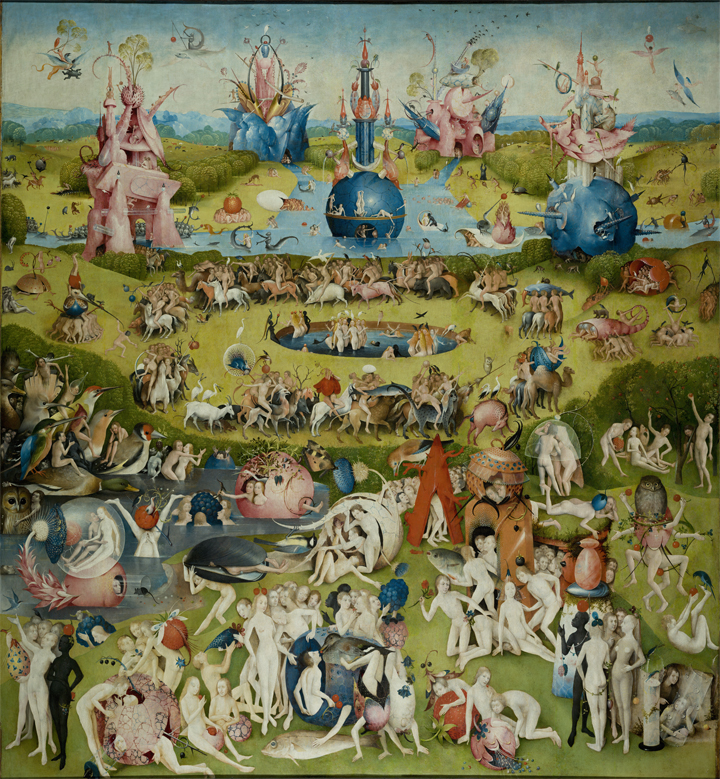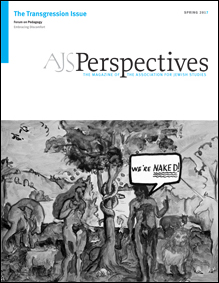
This is rumored to be a scene that took place in one of the most transgressive Sabbatian practices, better known as "Lamb Festival." The Sabbatians are the followers of the self-declared Jewish messiah, Sabbatai Zvi (1626–1676), who initiated one of the most remarkable messianic movements in world history. After Sabbatai Zvi's infamous conversion to Islam under Ottoman duress in 1666, some of his followers created a crypto-messianic sect that came to be known as the Dönmes. The sect, overtly Islamic and covertly messianic Jewish, sustained its enigmatic identity in the Ottoman Empire and modern Turkey and still exists today. The Sabbatian movement impacted Judaism via its "heretical" theology; influenced Islam via the Dönme Kabbalah; and had an impact on Christianity via Frankist radicalism in eastern Europe. By the eighteenth century, Dönmes were divided into three subgroups, Yakubi, Karakas, and Kapancı, each of which followed a unique historical and theological trajectory. In the meantime, they disagreed practically on anything. For example, the Kapancı's "Lamb Festival" was called the Bahar Bayramı (Spring Festival) among the Yakubi and Dört Gönül Bayramı (Festival of Four Souls) among the Karakas.
Religious communities often use calendars and festivals to reenact the significant events in their history, to renew their cosmic time, and to perpetuate their existence. Calendars and festivals serve as mirrors of experience. The Sabbatian calendar celebrates both Jewish and Islamic holidays—often in a subversive manner—in addition to its own holidays. The Lamb Festival was perhaps the most antinomian (and, by communal standards, antisocial) Dönme festival, so much so that only the radical members dared to observe it.
The most basic description of the festival, based on several historical and contemporary accounts, is as follows: on the night of 22 Adar (sometime in mid-March) the couples gather and perform a series of rituals in a ceremonial manner. The most important element of the meal at the dinner table is the seasonal lamb. Before that day, believers were supposed to refrain from eating mutton. The dinner is accompanied by songs, hymns, prayers, and drinks. At the end of the night, according to the most widely circulated rumors, the couples extinguish the lights and randomly swap partners. Babies who were conceived on that night were believed to be holy and would-be messiahs. Yitzhak Ben Zvi, an Israeli politician and historian who visited the Dönme communities several times in the first half of the twentieth century, noted: "The candles are put out in the course of the dinner which is attended by orgies and the ceremony of the exchange of wives."
There are several other written and oral Jewish and Ottoman accounts that claimed the existence of this transgressive practice. For example, a pamphlet circulated by the Istanbul Rabbinate in 1714 makes the same allegation. The Italian rabbi Joseph Ergas refers to it as early as in 1715. These sources suggest that most rabbis refused to work with the Dönmes in later centuries, maintaining that they were likely to be bastards (mamzerim). Therefore, it was forbidden for them to belong to the congregation and marrying them or their children was out of the question. According to a 1914 circular, the Ottoman chief rabbi still held this traditional Jewish attitude toward the Dönmes, accusing them of "immorality, sexual perversity, infidelity, and blasphemy." Echoing this rabbinical anathema, the historian Joseph Nehama (d. 1971) repeats that the Dönmes lived in sexual anarchy and swapped wives. In the 1870s, an Ottoman bureaucrat, Ahmed Safi, related that a young man of Salonica once happened to see about fifteen people having sex and drinking in one of the Dönme houses. In 1925, a Karakas woman claimed that she was forced to participate in one of those parties. Another young Kapancı man related that the practice continued in the nineteenth century, exclusively among married couples. In the same year, another apologetic Karakas man, Rüstü, corroborated that the most important and the most blessed of those holidays in the eyes of the Dönmes was the Lamb Festival. In later years, claims that widows were providing sexual training to bachelors and other allegations circulated.
To be sure, the Dönmes were not the originators of this particular antinomian practice. Although its historical origin is unclear, similar rumors and allegations of libertinism have been leveled against closed, esoteric, and messianic communities—including some of the Anatolian Alawites, Eastern Armenians, and Oriental Jews—since antiquity. Even Evliya Celebi, a seventeen-century Ottoman intellectual, mentions the existence of similar rumors in eastern Anatolia.
The Sabbatian theology was conducive to antinomian sexual tendencies from the beginning. A certain sexual wantonness entered the movement with the marriage of Sabbatai to "Sarah the harlot," a Polish- Jewish orphan who dreamed of marrying the messiah, though engaging in forbidden acts had been part of Sabbatian theology from the beginning, based on the talmudic teaching that "the Messianic Age will come when all men are righteous or all men are sinners." While Sabbatai was in Izmir, he demanded that his followers bring him their virgin daughters but he sent them back a few days later without having touched them. In Istanbul, one of his believers accused him of having committed adultery with his fiancée and impregnating her. The Sabbatian prophet Abraham Cardozo accused Yakub Çelebi, the founder of the Yakubi sect, of sleeping with his followers' wives. Even more scandalous sexual allegations were leveled against Osman Baba, the founder of the Karakas sect.
Like the Dönmes, the Frankists, that is, the Polish Sabbatians, were also the subject of wild rumors about their antinomian behaviors, particularly their ritual transgression of sexual prohibitions. They committed adultery, engaged in wife swapping, studied banned Sabbatian books, and professed the faith of Sabbatai. The diary of the sect's founder, Jacob Frank, details scenes such as the following: "The Lord set up a guard in the courtyard made up of our people, so that no one might dare even to look through the window, and he himself went in with the Brothers and Sisters, undressed nude and also Her Highness, and ordered all those gathered [to do so]. . . . after that, the sexual relations took place thereafter according to his ordination."
Such "strange acts" were justified by the postmessianic Dönme Kabbalah, which professed that the messiah had already come and abolished the rulings of the Torah of Beri'ah (this world) and initiated the Torah of the 'Azilut (world-to-come) in its place. In order to penetrate into the 'Azilut world fully, a believer was supposed to transgress the rulings belonging to this world. To be sure, one of the Sabbatian commandments deals with the prohibition of fornication, but it is formulated in an ambiguous fashion, given that the sexual prohibitions belonged to the world of Beri'ah. Gershom Scholem speculates that some of the Dönmes were of the opinion that as long as incest taboos are in force here on earth "it is impossible to perform the unifications above." In the mystical suspension of the prohibition on incest, man will become "like unto his Creator in the mystery of the Tree of Life." With this, as Scholem would call it, "redemption through sin" would be realized.
Sexual transgressions paradoxically signify rebirth and purification in mystical traditions. In the case of the Dönmes, through singing, drinking, and eating the "holy flesh of lamb," which was identified with Sabbatai, the believer became part of the holy community. This is akin to the Eucharist, when the believer partakes of the consecrated bread and wine and is thus united with the body of Christ. But the sexual union would be the closest and highest form of identification with the holy of the holiest.
There is a necessary link between eroticism and mysticism; both of them aspire to realize the ultimate union. In Jewish, Christian, and Islamic mysticism, sexual experience and sexual images play an integral role in the mystical journey to God. That's why mystical language uses erotic imagery abundantly in trying to describe the indescribable. One of the most inspirational Muslim mystics, Ibn Arabi (1165–1240), for example, likened the moment of orgasm to the Unio Mystica experience. So, it would come as no surprise Sabbatai and Sabbatians used sexual imageries such as "marrying Torah," and "being the bride of the Shekhinah" in their discourses. Fittingly, the "Song of Songs" and "Meliselda" were Sabbatai's favorite romances.
We are not sure whether all the Sabbatians put those transgressive ideas in practice, or whether they simply entertained the idea in a speculative manner. In the earlier times, the rite was practiced on the evening of the traditional commemoration of Sabbatai's birthday in the spring, but it is not clear whether it was associated with sexuality. The early Dönme songs and hymns contain implicit and explicit references to the festival, such as symbols of "eating," "the table," "the opening of the rose," "providing," and "lending."
One of the infamous Dönme leaders, Dervish Efendi of the eighteenth century, institutionalized this practice in full. In his mystical commentaries, he defended the abrogation of the sexual prohibitions contained in the "Torah of Beri'ah." Basing his interpretations of obscure passages in the Zohar, he introduced a sort of "collective marriage," wherein the women of the sect were married to all the men of the sect. He was even rumored to practice sexual hospitality, a practice that made its way to the Frankist circle. In Dervish Efendi's homilies, formulae such as "Freedom is the secret of the spiritual Torah," and "Soldiers are released from the Commandments" clearly refer to these antinomian practices. To some of the Dönmes, this lawless and nihilist attitude toward sexuality granted them the most liberating and redemptive experience on the way to the messianic age.

